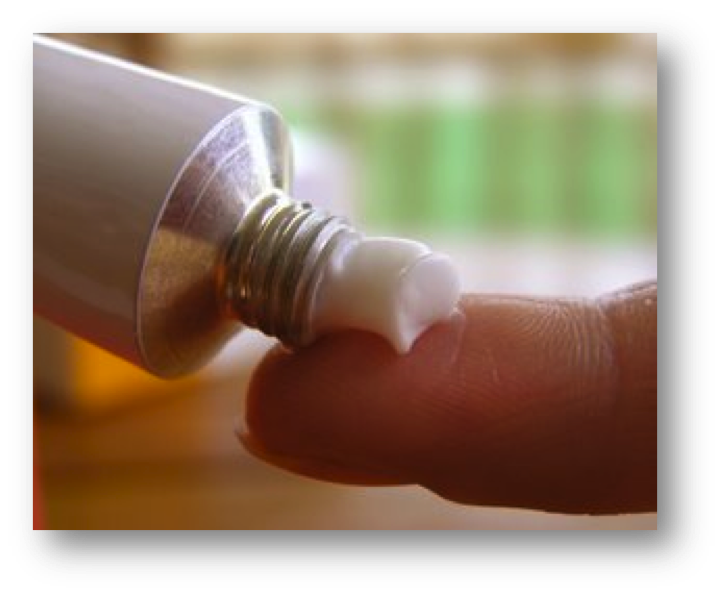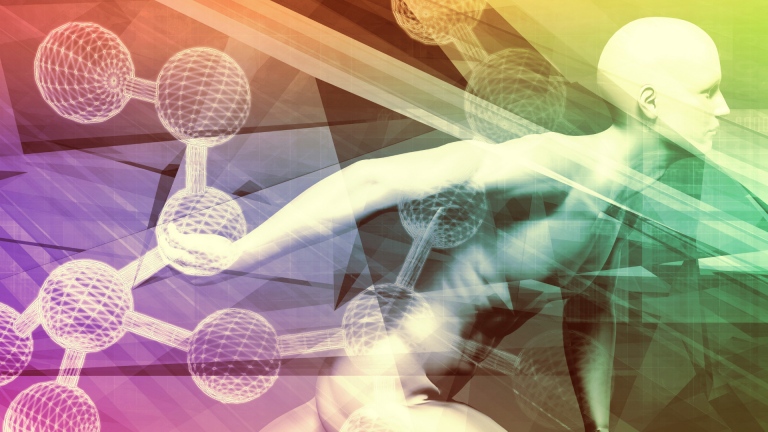Testosterone Gel and Androgen Deficiency
Testosterone gel treats symptoms of androgen deficiency (AD) syndromes. AD can cause low testosterone in men, which may lead to characteristic decreases in energy, metabolism, and sex drive. Like other forms of testosterone therapy, testosterone gel can cause side effects in some men. What makes the gel unique is that its side effects can spread to others through contact with the medication.
Understanding the risks can help protect you and your loved ones from testosterone gel dangers. AD syndromes are diagnosed through a combination of medical history and physical examinations. Your doctor also can determine low testosterone levels associated with AD through a blood test. According to the Hormone Health Network, a normal testosterone level is between 300 and 1,000 ng/dL.
Consistently lower levels can indicate a problem with the body’s natural ability to produce testosterone. Testosterone gel is just one of the various medications prescribed for such cases. The gel is designed for men who prefer the product over patches and injections. Like the patches, testosterone gel is applied topically daily.
Any time you medically increase hormone levels, there’s a risk for side effects. Specifically, testosterone gel may cause:
- headaches
- dry skin or acne
- hot flashes
- insomnia (which may be caused by hot flashes at night)
- anxiety or depression
- muscle pain and weakness
- further, decrease in libido
- reduced sperm count
While many of these symptoms aren’t severe, they can become bothersome. It’s important to tell your doctor about any side effects if they persist for more than a few days.
Other side effects of testosterone gel in men can be more serious. These may include:
- breast pain or enlargement
- difficulty or frequently urinating
- prolonged or frequent erections
- yellowing of the eyes and skin (jaundice)
Notify your doctor immediately if any of these side effects occur. Allergic reactions to testosterone therapy can increase your risk for similar responses to testosterone gel. Seek medical help if you experience breathing difficulties or swelling in any part of the body. Despite the benefits of testosterone gel, such medications aren’t a good fit for all men with AD.
Testosterone gel doesn’t pose the same risks to liver damage as other forms of testosterone do. However, it still may increase your risk for prostate cancer. For this reason, your doctor will assess your chances for prostate cancer, including an examination of the prostate and a blood test that measures prostate-specific antigen (PSA) levels.
Other factors that may prevent you from being a good candidate for the gel include:
- sleep apnea
- heart disease
- breast cancer
- high levels of red blood cells
While testosterone gel is designed for men, the effects can extend to women. Although the risk is low, side effects may occur when women touch the product directly or through clothing. Signs of contact include increased acne and unusual hair growth. If you’re a woman who lives with someone using testosterone gel, you must avoid contact with the product entirely. Children are the most susceptible to the risks associated with testosterone gel because their bodies are still developing. Particular care in using the medication is strongly encouraged if you ever have contact with children—even those who don’t live with you.
Testosterone gel can cause numerous problems in children, including:
- anxiety and aggression
- early puberty
- increased sex drive
- frequent erections in males
- enlarged clitoris in females
- stunted growth
Prevent testosterone gel transfers to others. Always apply the gel before getting dressed, and make sure it’s scorched to avoid transfer to clothing. Once used, wash your hands thoroughly, and clean the application area if you expect any skin-to-skin contact. If you suspect accidental product contact with a woman or child, ensure they wash their skin immediately and call a doctor.
The dangers of testosterone gel exposure to women and children are real and should be taken seriously. As a medicine user, it’s also important to protect yourself. Report any unusual side effects to your doctor right away. Never share your medication with anyone, and don’t use testosterone gel that isn’t prescribed to you. This drug is intended for AD syndromes and is not the anti-aging cure that some unrepeatable companies make out such products to be.
Testosterone Injections are the most common treatment for men going through andropause. This therapy may provide help and relief from the symptoms and help improve the quality of life in many cases—also, lifestyle changes such as increased exercise, stress reduction, and proper nutrition help. Testosterone therapy is available in different forms; ask your doctor he will help determine which treatment is best for you.
- TESTOSTERONE INJECTIONS: This treatment involves doses of bioidentical (Testosterone Cypionate, Testosterone Enanthate, and Testosterone Propionate).
- TESTOSTERONE PATCHES: People who wear a piece containing testosterone receive the hormone through the skin. The patches allow a slow, steady release of testosterone into the bloodstream.
- TESTOSTERONE GEL: This treatment is applied directly to the skin, usually on the arms. Because the gel may transfer to other individuals through skin contact, a person must wash the gel from the hands after each application.
- TESTOSTERONE CAPSULES: This is yet another option for testosterone replacement. Men with liver disease, poor liver function, severe heart or kidney disease, or too much calcium in their blood should avoid testosterone capsules. Follow-up visits with your doctor will be necessary after the initial treatment begins. At follow-up visits, your doctor will check your response to the treatment and make necessary adjustments.
**NOTE** The content contained in this blog is subject to interpretation and is the opinion of the content writer. We do not claim it to be fact. We encourage you to consult a medical doctor before taking any prescribed medications or supplements.
At AAI Rejuvenation Clinic, we advise anyone to think seriously about beginning Hormone treatment if there is no medical need for it. However, we will take every precaution to ensure that you read your program’s positive benefits by providing the latest at-home hormonal mouth-swab testing to ensure we are continually monitoring your progress and aware of any adverse side effects. Fill out the Medical History Form, or if you need more information, call us at (866) 224-5698 or (866) AAI-Low-T.
Low Hormone Symptoms
- Motivation
- Sex Drive and Desire
- Depression
- Fatigue
- Erectile Dysfunction
- Cholesterol
- Low Energy
- Memory Loss
- Osteoporosis
- Wounds & Illness
- Muscle Mass
- Sleep Disturbances
- Thyroid Dysfunction
- Weight Gain
]]>




